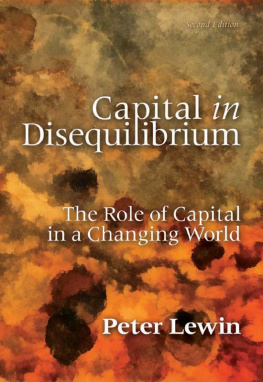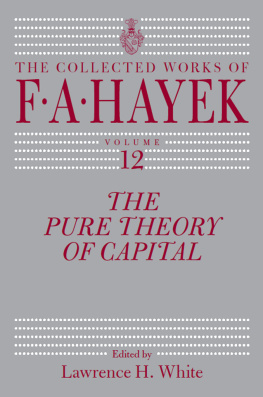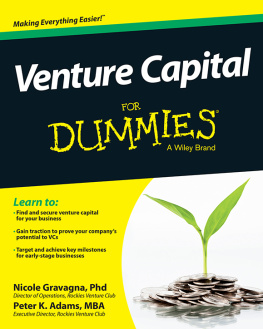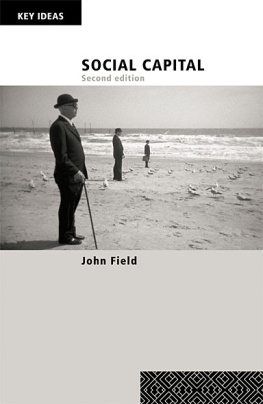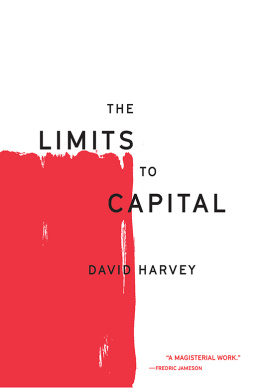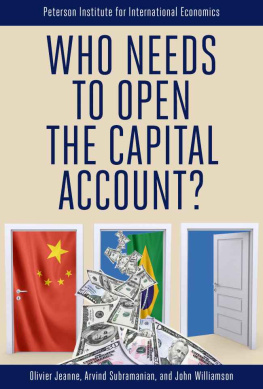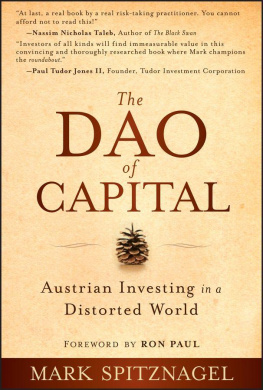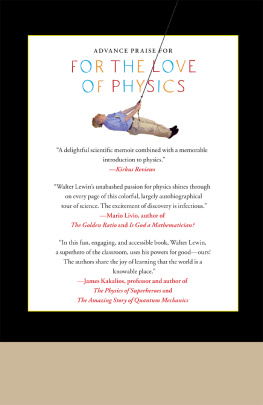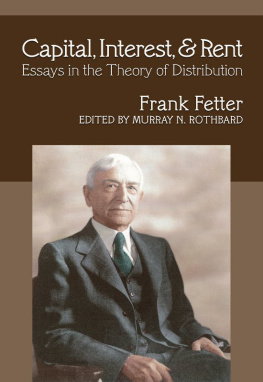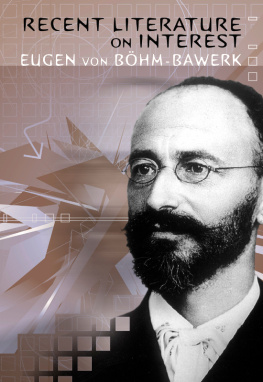Capital in Disequilibrium
Capital in Disequilibrium
The Role of Capital in a Changing World
Second Edition
PETER LEWIN


Copyright 2011 by the Ludwig von Mises Institute
Published under the Creative Commons Attribution License 3.0.
http://creativecommons.org/licenses/by/3.0/
Ludwig von Mises Institute
518 West Magnolia Avenue
Auburn, Alabama 36832
Ph: (334) 844-2500
Fax: (334) 844-2583
mises.org
10 9 8 7 6 5 4 3 2 1
ISBN: 978-1-61016-239-5
Contents
Acknowledgments
I owe a large intellectual debt to two remarkable and very different teachers.
The spark of interest, of which this book is the culmination, was ignited when, as an undergraduate (in 1968), I took a course in capital theory from my teacher Ludwig Lachmann, at the University of the Witwatersrand in Johannesburg, South Africa. Lachmanns ideas have influenced the writing of almost every page of this work. From him I learned at a young and impressionable age to think critically about the implications of time for human action. From him I inherited an enduring fascination with the questions posed by capital theory, a fascination enhanced by the very complexity of the subject. I suspect that it would not have troubled him in the least that his student presumed to differ from him in some ways and to extend his approach into novel areas; on the contrary, I imagine he would have been quite pleased. In particular, Lachmanns influence as an economist was limited by the absence of concrete or practical implications of his work. Yet, as I have tried to show, his general insights have specific applications in the areas of the theory of the firm, in human capital, and many other areas.
Professor Lachmann, in addition to providing a crucial component of my education, helped me in other ways at the beginning of my professional career. He was always considerate and respectful of his students and his memory inspires and sustains me.
I am indebted in a less personal, but nevertheless important, way to Gary Becker. Professor Becker was my PhD thesis committee chairman and my teacher for a number of graduate courses. The opportunity to study with him was of inestimable value to me in my training as an economist and, more particularly, in gaining an appreciation of the importance of human capital (and related subject areas, like the economics of the family). His influence will be particularly apparent in the chapters that deal with human capital.
This work, then, has been in the pipeline for many years, during which time I have benefited from talking to many individuals. I cannot hope to recall them all, at least not without engaging in an inappropriate exercise of intellectual autobiography. However, they include Karl Mittermaier, Landis Gabel, Sam Weston, Bob Formaini, Roger Garrison, Richard Ebeling, Don Lavoie, and Karen Vaughn. I have benefited from comments on presentations at the Colloquium on Austrian economics at New York University, most notably from comments by Mario Rizzo, Israel Kirzner, Peter Boettke, Joe Salerno, Bill Butos, Roger Koppl, David Harper, Don Boudreaux, Frederic Sautet, and Sanford Ikeda. I also benefited from comments received at presentations at the Southern Economic Association and the History of Economics Association meetings. Larry White provided very useful comments.
I am very grateful to Steven Horwitz who read the entire manuscript of an early version and provided numerous stylistic and substantive corrections.
This book would not have been written without the efforts and encouragement of Mario Rizzo. It was he who first suggested it and provided important directional indicators. In addition, his work in Austrian economics has been an important source of inspiration for me and has helped me to gain greater insight into and appreciation of many of the themes that appear in the pages that follow.
In the years since the first edition of this book I have benefited from too many individuals to name. My coauthor Howard Baetjer cannot go unmentioned however. His work on capital and knowledge is crucial to my current understanding of the subject. For editorial assistance at the Mises Institute I thank Jeffrey Tucker and Paul Foley.
I need hardly add that none of the individuals mentioned above is to be implicated in any of the errors that may be found in this work, especially where they are the result of my stubborn refusal to follow their advice.
In addition to colleagues and teachers, I have been fortunate to have had the support of friends and family, without which I could not have found the time and resolve to complete this work. My parents, Merle and Herman Lewin, have been a constant source of support and have stood by me in my obstinate determination to follow the calling of academe. To my father-in-law Felix Shapiro, also my constant friend and admirer, I owe more than I can say. And finally and mostly, my family, my children Dan, Andy, Shiralee and Gabbi, each in their own way has helped me in this strange project (as they must see it); and my wife Beverley, my partner in life, who has struggled valiantly to identify with her husbands determination to complete this weird time-and energy-consuming project.
Preface to the Second Edition
It has been twelve years since the original publication of this book in 1999. Much has happened in the intervening years to affect its relevance.
In the world of economic policy, the relevance of (Austrian type) capital theory has increased dramatically. The appeal of what Ludwig Lachmann referred to as neoclassical formalism has not diminished. Policy-makers, following the counsel of their economic advisors, who are ruled by a belief in the significance of economic aggregates, have persistently ignored, indeed precipitated, capital structure distortions; the results of which have been two major domestic economic crises (the dot-com bust and the housing-bubble meltdown), a global credit crisis, a chronic fiscal deficit and an exploding debt burden that threatens to destroy the very fabric of the economys value-creating potential. This book is designed for those who wish to understand, in a thorough and fundamental way, the nature and significance of capital. What makes an economy capitalist? How does value get created over time? If we get this wrong we may end up paying a high price indeed.
The erroneous ideas upon which disastrous economic policy has been based have come down from the intellectual forebears of the current generation of economic advisors. A full appreciation of this entails understanding the nature of battles fought long ago over the nature and significance of capital and capital theory. Accordingly, the focus of this book on this particular aspect of the history of economic thought remains very relevant.
In the world of economic theory, though the majority of the economics profession remains oblivious of, and contemptuous of, anything outside of its narrow quantitative orientation, and, indeed, has become even more finely specialized and technically esoteric, so that its members know more and more about less and less over time, on the growing fringes of the profession a number of heterodox approaches have prospered and are growing. One of these heterodox approaches is that of Austrian economics, which has continued to gain adherents, including from young, energetic graduates who are beginning to make their marks. I hope that the re-publication of this book in a more accessible form will serve to encourage this development and provide a firm foundation for the diverse applications of capital theory that are now becoming evident.
Next page
